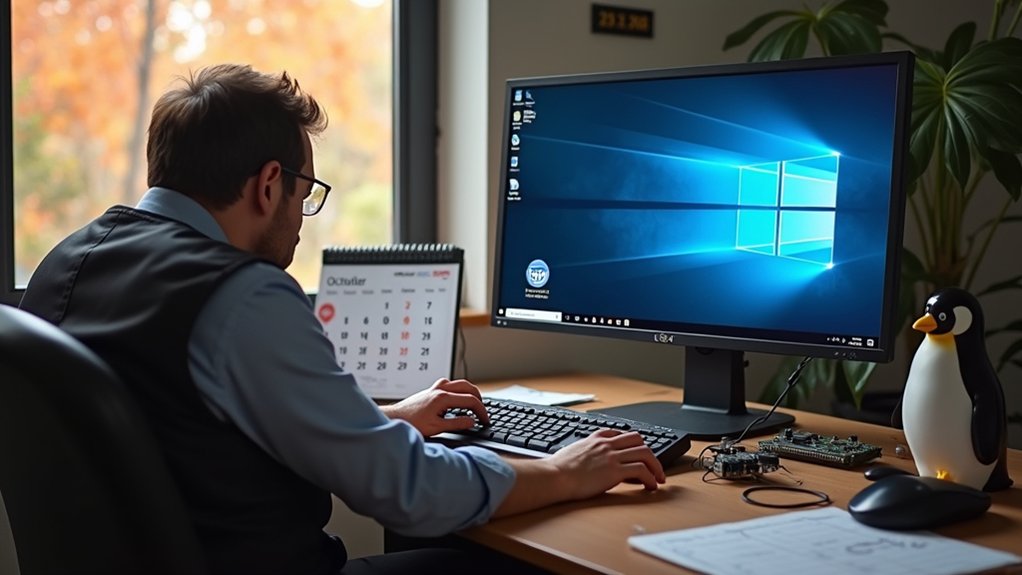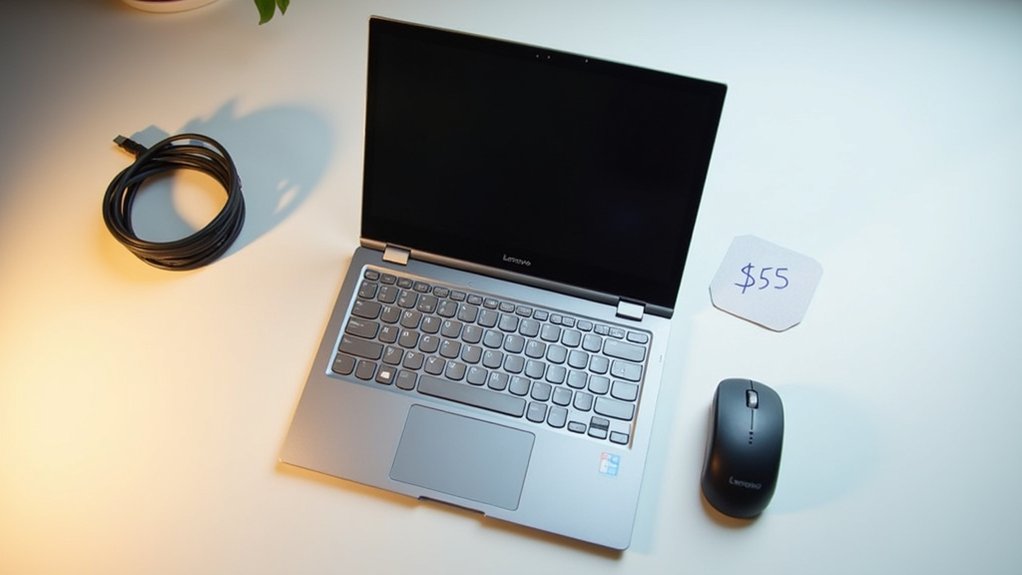While Microsoft once dominated the operating system landscape with ease, its Windows 11 rollout has stumbled from the start. The tech giant’s insistence on strict hardware requirements has alienated millions of users with perfectly capable PCs. TPM 2.0 module? 8th Gen Intel processors? Really? Countless functional computers suddenly deemed obsolete. Nothing says “customer-friendly” like forcing people to buy new hardware during an economic downturn.
Microsoft’s hardware gatekeeping turns capable computers into doorstops while demanding new purchases during tough economic times.
The numbers don’t lie. Windows 11 sits at a measly 42.7% market share as of April 2025, with Windows 10 still ruling at 54.2%. That’s pathetic progress considering Windows 10 End-of-Support looms just months away in October 2025. Even gamers—typically early adopters—have shown lukewarm enthusiasm, with Steam surveys occasionally revealing backward adoption trends.
Microsoft’s “revolutionary” features haven’t exactly set the world on fire either. A centered taskbar? Auto HDR? Copilot AI integration? Yawn. Most users can’t name a single must-have feature that justifies upgrading from Windows 10. The Start Menu redesign stripped away functionality, making it harder to find what you need. Less customization, more frustration.
Enterprise customers are particularly annoyed. They just replaced laptops during the pandemic, and now Microsoft wants them to buy all new hardware? Good luck with that budget request. Many IT departments are dragging their feet on migration, wondering if the hassle is worth it.
Then there’s the Microsoft Account requirement and forced Edge browser integration. Nothing users love more than being told how to use their own computers. Pop-up ads within the OS? Chef’s kiss of annoyance.
Microsoft’s latest brilliant idea? Focusing on AI features that require even newer hardware with NPUs, further fragmenting their user base. It’s almost like they want people exploring Linux alternatives. The company also missed an opportunity to require high-speed flash-based drives which would have actually improved user experience instead of just enforcing controversial security features. Despite recent rumors, Microsoft continues to recommend against installing Windows 11 on unsupported devices, showing no signs of relaxing their restrictive stance.
The clock is ticking on Windows 10 support, but Microsoft’s heavy-handed approach might just backfire spectacularly. Users hate being pushed—and they’ve never had more alternatives.




